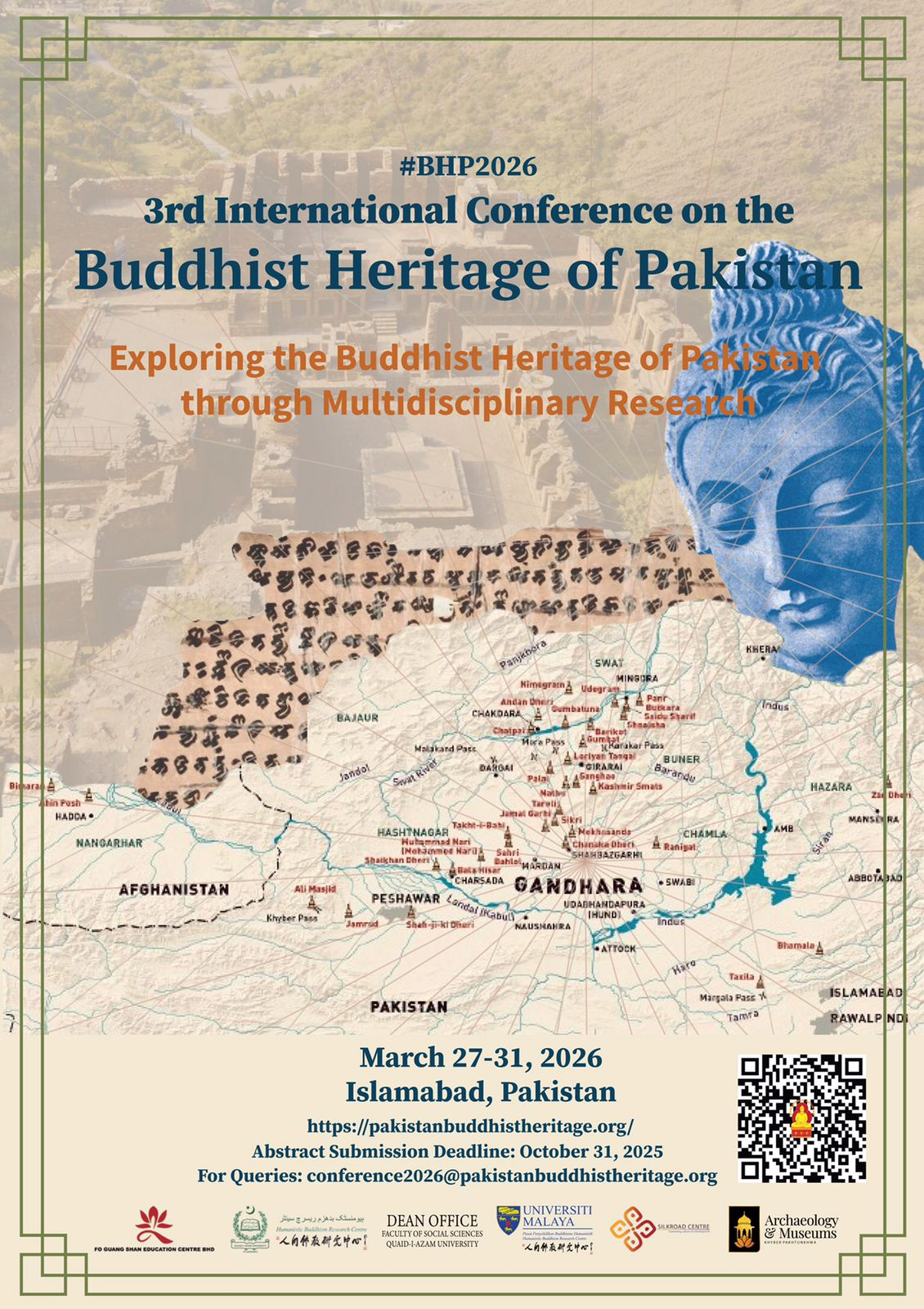INTRODUCTION
Pakistan is a holy land for millions of Buddhist devotees around the world. It is the cradle of the famous Gandhara Buddhist art and iconography. It is the birthplace of renowned Buddhist philosophers and spiritual masters like Asanga, Vasubhandhu, Guru Rinpoche and Monk Marananta. The two brothers, Asanga and Vasubhandha, lived in Peshawar, then known as Purushapura, in the 4th century CE. They became prominent Buddhist philosophers by shaping Buddhist thought for centuries to come.
Guru Rinpoche (also known as Padmasambhava) was from the Swat valley. He is venerated as the “second Buddha” by adherents of Buddhism in Bhutan, Nepal and China. The monk Marananta is believed to be from Chhota Lahore in today’s Swabi district. He travelled from Chhota Lahore to Korea through China and preached Buddhism there.
Gandhara of Pakistan is home to the ancient and highly sacred Buddhist stupas and monasteries in Taxila Valley, Mardan, Swabi, Swat and many other parts of Pakistan. Buddhist manuscripts discovered in Gandhara dating back to the 2nd century CE are the oldest surviving collection of Buddhist texts in the world. As a holy land of Buddhism, Pakistan houses the Buddhist heritage of unmatched significance for devotees, scholars and students of Buddhism to explore.
The Fo Guang Shan Education Centre Malaysia, Taxila Institute of Archaeology and Civilizations at Quaid-i-Azam University, Directorate of Archaeology and Museums, Khyber Pakhtunkhwa and Silk Road Centre are jointly organizing the third international conference to promote the Buddhist heritage of Pakistan for knowledge development, peace and prosperity. The event features research sessions and post-conference tours to key Buddhist sites in Gandhara.
PURPOSE AND OBJECTIVE
This year’s conference is designed to engage a wide range of stakeholders including scholars, faith leaders, conservation specialists, tour operators, and young researcher in knowledge development, conservation discourse, and dialogue to preserve and promote the Buddhist heritage of Pakistan dating back to the 3rd century BC.
CONFERENCE FORMAT
Following two successful events in 2022 and 2024, the 2026 conference will feature in-person panel discussions, presentations and talks for two days starting on Friday, March 27, 2026. The conference will be followed by guided tours to key ancient Buddhist sites and museums in the Gandhara region of Pakistan.
Research Sessions
The research sessions will follow a format of panel discussions providing an opportunity to multiple presenters to speak on a common sub-theme of the conference. There can be multiple concurrent sessions depending on the number of presenters on one theme. Research presenters will be encouraged to rely less on paper reading and lecturing and use more engaging techniques to present their research. Presentations by the panelists will be followed by questions and answers.
Guided Tours
After two days of the conference, conference attendees will be offered flexible 1 to 3-day itineraries to visit key Buddhist heritage sites and museums in Gandhara such as Islamabad, Taxila, Peshawar, Mardan, and Swat.
CONFERENCE THEME AND SUB-THEMES
The 2026 conference aims to bring together and engage key stakeholders in a meaningful dialogue on preserving and promoting the Buddhist heritage of Pakistan for peace and prosperity. Centered around research and knowledge development, the conference theme and sub-themes will explore the significance of Buddhist heritage and emphasize the need to protect it as a vital cultural and economic asset for the development of Pakistan. This multi-disciplinary conference will address a range of topics covering history, archaeology, art, architecture, the use of technology, and the impact of climate change on cultural heritage.
Conference 2026 Theme
Exploring the Buddhist Heritage of Pakistan through Multidisciplinary Research
Sub-themes
IMPORTANT DATES
Contributors and conference attendees are requested to take note of the dates below to ensure their participation in the conference.
Submission of Proposals
October 31, 2025 | Deadline for submission of abstracts |
November 30, 2025 | Notification of decision to contributors |
January 15, 2025 | Submission of full papers |
January 31, 2025 | Deadline for registration of presenters/attendees |
February 20, 2026 | Finalize conference program |
February 28, 2026 | Publish final program |
ABSTRACT SUBMISSION GUIDELINES
Authors are requested to send in their abstracts for review by the Conference Academic Committee, comprising research scholars and academics. The Academic Committee shall not accept full papers prior to submission and approval of abstracts. Authors of selected abstracts will be notified to submit full research papers within the specified. Contributors are requested to send their abstracts on or before the closing date of October 31, 2025. While preparing your abstracts, please note that:
• Background and aim of research
• Methodology, Analysis and Results
• Conclusion and implications
BHP Conference 2026 - Format for Submission of Abstracts | |
Name of Author |
|
Co-Author/s (if any) |
|
Author Email |
|
Author WhatsApp/Phone Number |
|
Title of the Paper |
|
Conference Sub-theme |
|
Abstract (150 to 300 words)
| |
